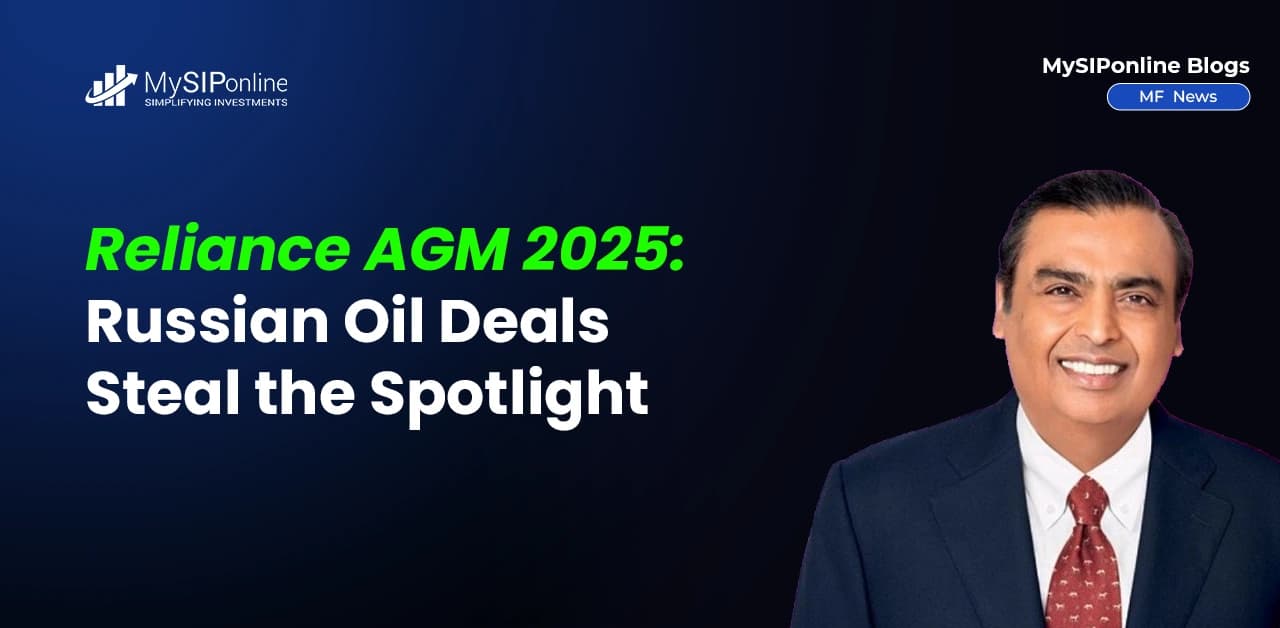Reliance Industries Ltd.’s annual general meeting is always a much-awaited day in India’s financial calendar. Shareholders usually expect new targets, bold announcements and updates from Mukesh Ambani. In 2025, the meeting was about the future and the present situation, especially Reliance’s oil business.
The Russian Oil Connection
One of the most serious talking points is Reliance’s deal with Rosneft Oil Co., PJSC of Russia. The company has been buying discounted Russian crude oil, saving it hundreds of millions this year.
According to estimates, India saved about $3.8 billion in 2025 from Russian oil purchases, with Reliance saving nearly $571 million in just the first six months. But here is the twist: the US recently doubled tariffs on Indian imports because of these Russian deals. That puts Reliance in a difficult position.
The Dilemma for Reliance
On one hand, Reliance has a long-term 10-year oil supply deal with Russia. Breaking it could mean losing a serious cost advantage for its world-class Jamnagar refinery. On the other hand, continuing the agreement could mean facing more US tariffs, trade restrictions or even sanctions.
This makes Reliance’s situation diplomatic. If it stops Russian imports, it weakens its refining profits. If it continues, it risks more political and financial pressure from the US.
Don't Miss: India-Russia to Expand Trade, Ignore Trump’s Oil Tariff Threat
Ambani’s Focus at the Meeting
While investors expected Mukesh Ambani to talk about Russia directly, sources say he avoided it. Instead, his speech is expected to highlight other Reliance businesses like telecom (Jio), retail, and the company’s growing investments in artificial intelligence and clean energy.
This approach matches Ambani’s strategy; he usually acts strategically rather than reacting publicly to international pressure.
Oil Still Powers Reliance
Even though Reliance has been shifting towards telecom, retail and green energy, its oil and gas business still contributes over half of its annual revenue. The Jamnagar refinery, one of the world’s largest and most advanced, allows Reliance to process a wide range of crude oils, giving it a competitive edge.
Reliance has also explored new crude suppliers, including the US, West Africa and the Middle East. Recently, it bought 2 million barrels of US crude, which is balancing its Russian dependence.
Also Read: Trump Tariffs, India Becomes 2nd-Largest Economy by 2038, EY Says.
The Global Pressure on Reliance
The US has been critical of India’s Russian oil imports, accusing Indian companies of indirectly funding Russia’s war. While Ambani has not been personally named, Reliance’s role as India’s largest Russian crude buyer makes it a target of global scrutiny.
Analysts believe Reliance could face more taxation, compliance checks, and political pressure if the situation continues.
Looking Ahead
Despite the noise around oil, Reliance’s AGM is also about the future of Jio’s expansion, retail growth and massive clean energy projects like solar, batteries and hydrogen fuel. Oil may remain the backbone, but Reliance prepares for a diversified, greener future.
As one market expert said, “Reliance will not make big oil announcements. They will continue business calmly while focusing on Jio, renewables and attracting more global investments.”






(1).webp&w=3840&q=75)




